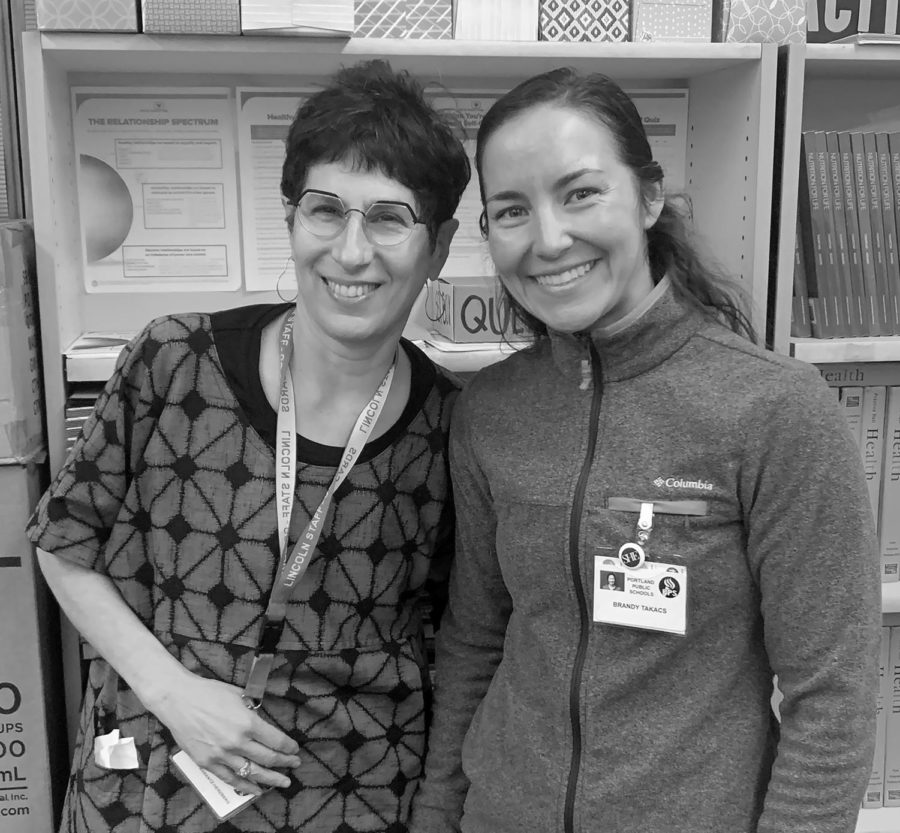Substance abuse groups promote mental health and physical health
The two leaders of the LINC club are Judy Marantz-Herzburg and Brandy Takas. Members of LINC aren’t allowed to be pictured.
Many students at Lincoln struggle with substance use, or know someone who is struggling. In addition, many do not fully understand the risks. To combat this issue and to provide students with the resources they need, students and administration have established two groups that are dedicated to educating students about the dangers of drugs and alcohol.
The first is a substance awareness group that meets weekly during lunch on Mondays. This group is funded by Regence Health. Regence has provided Lincoln with a grant to help bring awareness about substance use among teens.
This group is facilitated by Lincoln’s social worker, Judy Marantz-Herzberg. Marantz-Herzberg leads discussions surrounding questions students have regarding drugs and alcohol.
“I think it’s important for people to have places where that can be honest and reflective and start to notice their feelings,” Marantz-Herzberg says. “Feelings drive us, whether it is a feeling of wanting to be included or loneliness, that is really at the core of our behaviors.”
The second group is LINC, led by seniors Lillian Notar, Michael Reilly and Joe Burns. The group works on addressing drug and alcohol use specifically in the Lincoln community. They focus on helping students make safe choices regarding drugs and alcohol.
LINC leaders agree that alcohol and substance use happens at Lincoln due to many reasons including party culture, peer pressure and mental health.
“Students may abuse substances to try to ease their pain and others enjoy partying on the weekends to distract themselves from stress,” Notar says. “Many students don’t feel comfortable to seek help through school because they’re afraid they will be reported.”
Teachers and administrators also recognize that substance abuse is prevalent.
“In the most recent Oregon Healthy Teens Survey 2019, the data shows that the party culture being described at Lincoln is very much real. The data also shows that teens at Lincoln are using alcohol and other drugs more than they did in 2015 and 2017,” says health teacher Brandy Takas.
Takas says there are several reasons for the rise in drug and alcohol use at Lincoln.
“The first reason is peers access to alcohol and other drugs. The second reason is the perception of risks has gone down. Lastly, parental influence data in the Oregon Healthy Teens Survey 2019 shows that teens perceive their parents wouldn’t mind them using marijuana,” says Tackas.
One of the LINC leaders has suggestions for how to reduce substance use at Lincoln.
“Our community needs to become more open to mental health and ending the taboo of permissive norms about substance use,” says Notar. “We need to spread awareness about the physical and psychological safety we have at school, and educate us more on positive intellectual, social, psychological and emotional development skills.”

